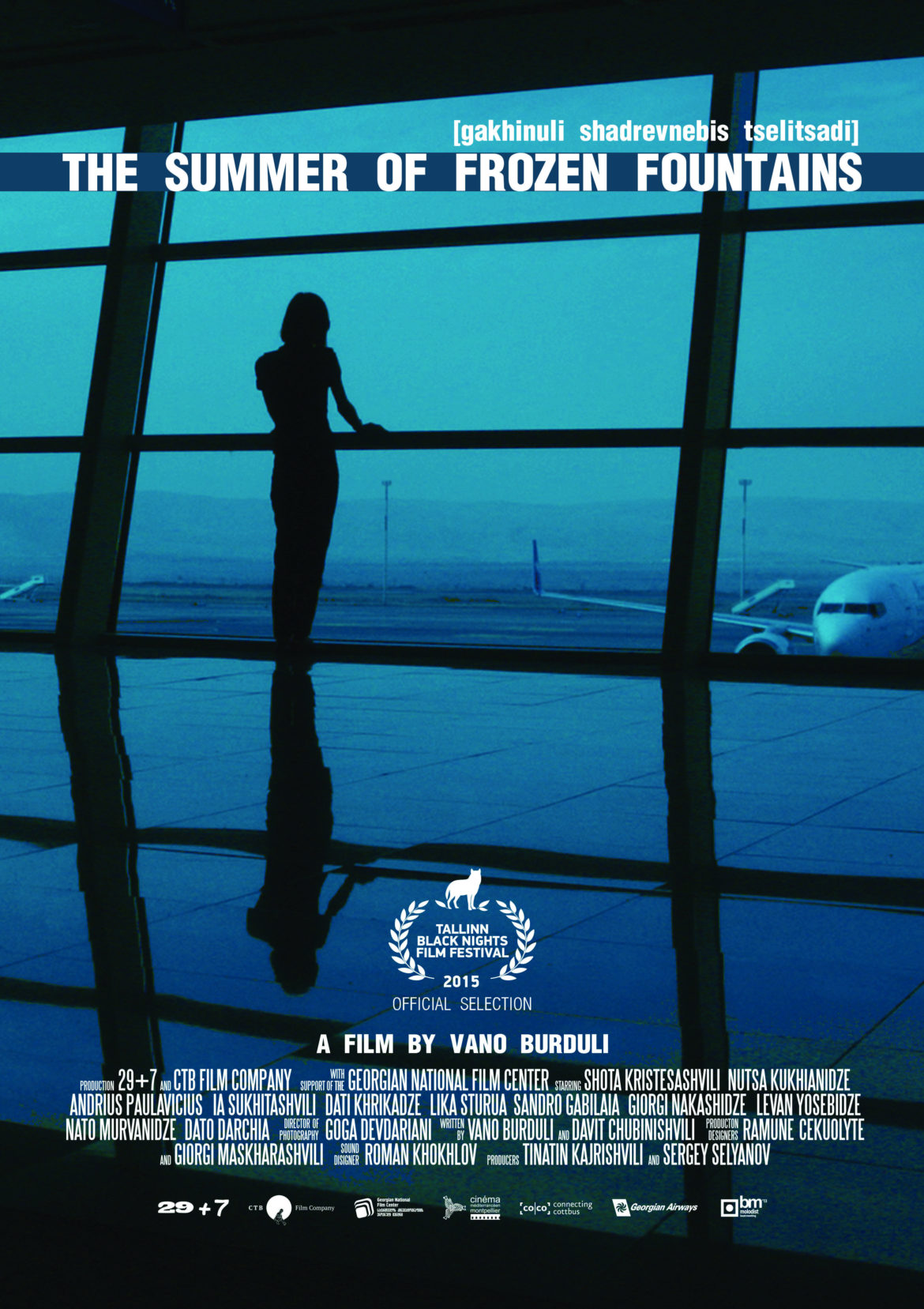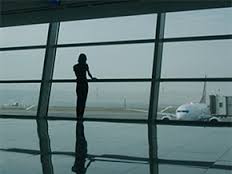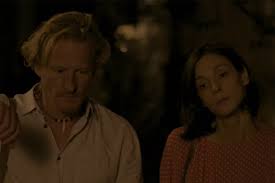Things happen, connections are implied, and narratives intersect … but Barduli seems opposed to the notion of resolution. This can be entrancing or frustrating, depending where you’re seated.
Summarizing the film is a fool’s errand. IMDB tried, and came up with this monstrosity:
“Does air temperature really matter for fountains to be frozen or melt? One just need to stop and look around… It’s a mosaic of several interrelated characters in search of their own happiness. It’s about hopes and disapointments, betrayal and forgivness… and of course it’s all about love…”
Yeesh.
Anyway, we are in Tblisi. Two kids are in love, and we hang out with them by waterfalls. The boy’s brother is off in America, and people wonder after him – though we’re never quite sure who knows what. The girl has a dog named Bono, named after the portrait of the U2 singer that adorns her wall, and her boyfriend is on a romantic mission to get her something from the actual guy, so he bugs everyone in town about whether they have any contacts in Dublin. He has a friend in an older village guy named Gio, once close with his brother, whose wife was in a car accident. Relief turns to discomfort as the accident reveals she was having an affair. An Irish photographer is in town, capturing on film the things he think define the Georgian experience. He’s in love with a neighbor whose father, a once-famous photographer himself, now takes pictures from a single vantage point outside his apartment window. A trio of men, discussing the weather, the gossip, and occasionally cuddling a beloved kitten, serve as a Greek chorus of sorts.
People watch planes.
What is it all about? Barduli weaves a tapestry of individual moments, some of which intersect, most of which don’t. The film aspires to be a lived-in portrait of modern life in Georgia – this is fine, but it’s not clear what we are supposed to be experiencing. Several questions haunt the film, in ways that are less interesting than simply unresolved. It’s like Love, Actually, if no one ever met.
And yet …
The film undeniably builds an atmosphere, a mood, that signals possibility. We wait for expected revelations that never come. When the Irishman is asked what he’s looking for, he responds, “Like everyone, I’m looking for paradise on earth.” It’s a tossed-off line that gains resonance. The streets of Tblisi are a window into a kind of romanticism that would never be satisfied with clear narrative lines and a final kiss in a light rain. That’s not how things go here.
Still, viewers might hope for something a little more grounded, a single story that resolved. Barduli does not seem like he’s interested in providing that. The film’s best moments – the young lovers, the stray street animals, the attention to visual detail on the buildings and cobblestones – hint at a dream. Everyone is here, but everyone is leaving, wishing they were elsewhere or wondering how things are going outside of town. The general sense is bittersweet.
The Summer of Frozen Fountains, saddled with an unfortunate title that the film does no favors when it comes time to explain it, is a dip into a vast pool. Whether this is a good or a bad thing will depend on individual taste. Maybe you’ll be entranced, or maybe you’ll doze off, or maybe you’ll write the worst IMDB summary ever. I’m not sure Barduli cares either way. His focus is on small moments, and it’s a technique that has small rewards.



